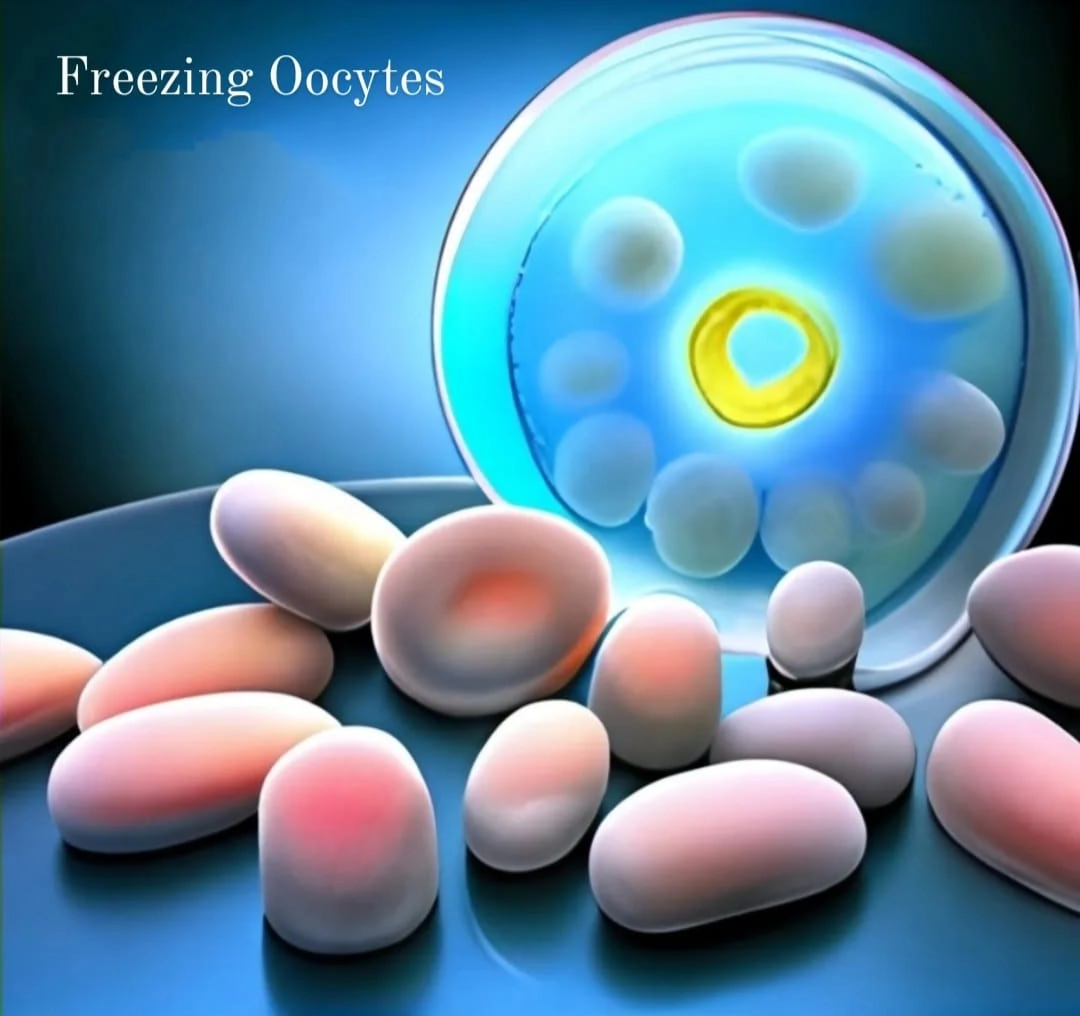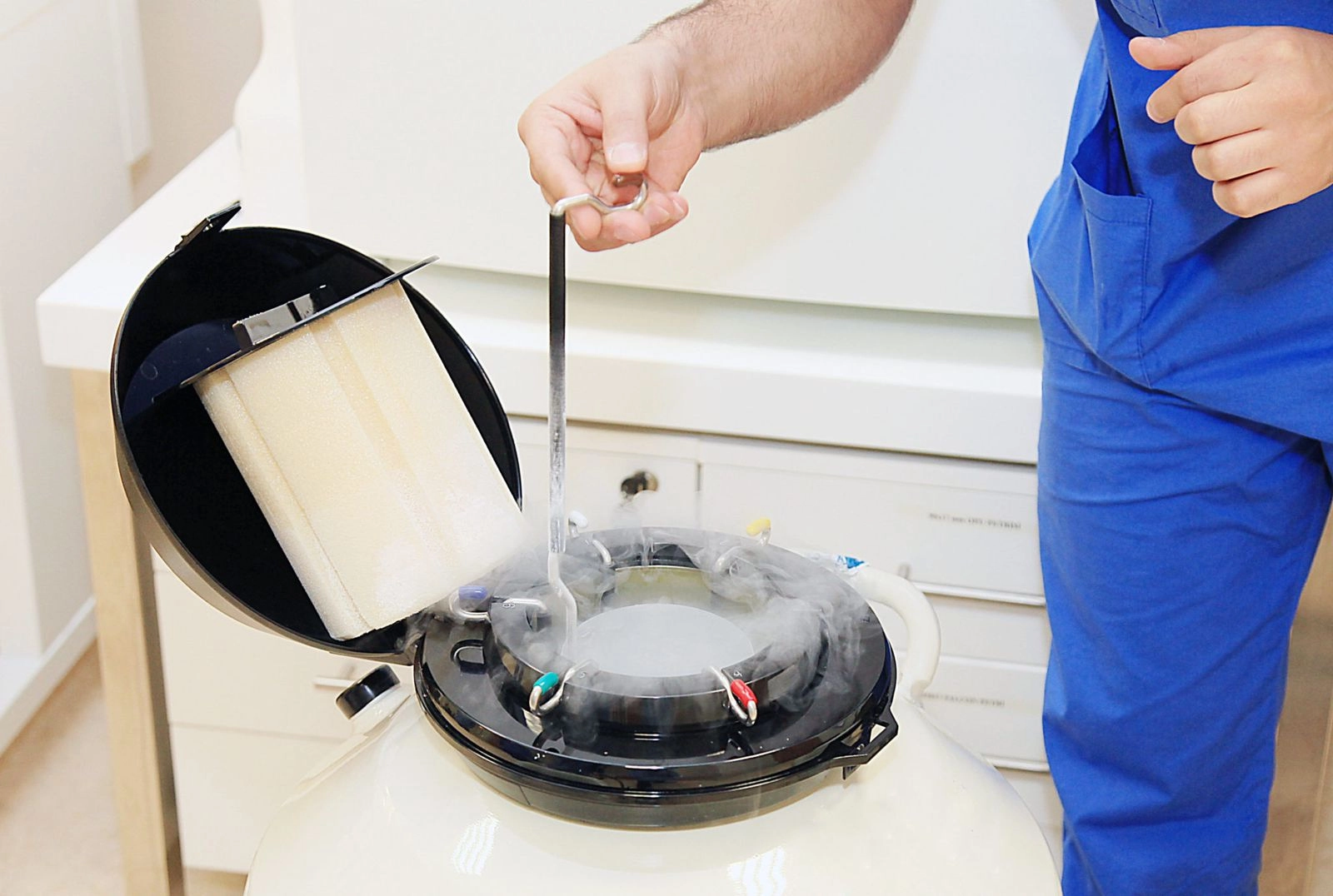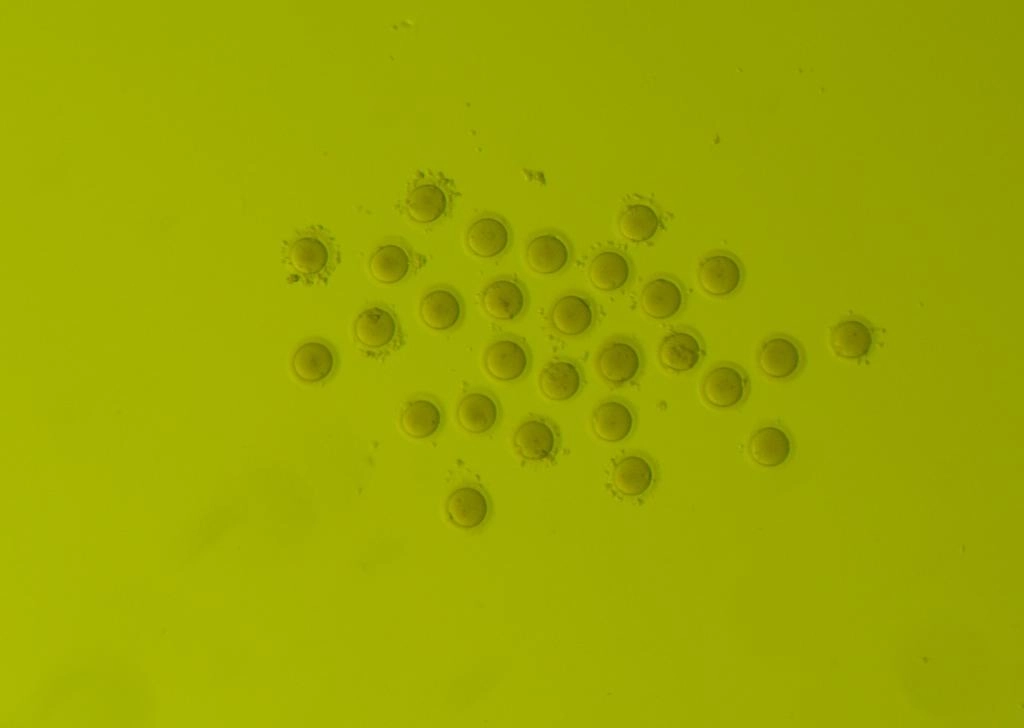Oocyte cryopreservation (freezing Oocytes)
Oocyte cryopreservation (freezing) is a procedure to "keep" a woman's eggs for later use, this method enables women to postpone motherhood to a later date due to medical or social reasons, nowadays it plays a crucial role in assisted reproductive technology as it provides women with greater reproductive autonomy and increases their chances of having a healthy pregnancy later in life.
**Indications of oocyte freezing:
- To preserve fertility for patients undergoing gonadotoxic treatment (chemotherapy and radiotherapy)
- To surpass age-related infertility
- To preserve fertility for those susceptible to early loss of ovarian function
- To preserve future fertility for those who still haven’t found a partner
- In patients using ART and who are against embryo freezing due to religious or cultural reasons.
- Women who are positive for breast cancer gene mutation and are planning prophylactic oophorectomy.
- Fertility preservation for patients with severe endometriosis
- When sperms can't be obtained on the day of oocyte retrieval in IVF cycles
**How is oocyte freezing performed?
- Ovulation induction using hormonal injections to produce multiple eggs.
- When multiple eggs are mature an injection is given for final maturation induction
- Eggs are retrieved through transvaginal or transabdominal route under sedation.
- Eggs are immediately frozen.
Oocytes have high content of water thus freezing leads to formation of ice crystals which destroys cell integrity, thus the egg must be dehydrated before freezing thus inhibiting the formation of ice crystals.
**Risks of the procedure:
- Ovarian hyperstimulation syndrome
- Bleeding and infection related to egg retrieval procedure.
- Ovarian torsion due to enlarged ovaries.
- Giving false sense of security for the woman to further delay conception and pregnancy
**For how long can oocytes be frozen?
Up to 10 years and it can be extended under certain circumstances.
**Is oocyte freezing associated with increased incidence of chromosomal abnormalities?
The answer would be no, it doesn’t increase chromosomal abnormalities.
**What interventions can be done to assess egg quality before proceeding to egg freezing?
- Visualization of spindles in metaphase 2 oocytes

- Measuring the size of spindle
- Polar body biopsy (to make sure that embryos will be euploid)
**What happens when it's time to use frozen eggs?
Eggs are thawed and ICSI follows.
**Why do we have to perform ICSI when using frozen eggs?
Egg freezing makes the outer layer tougher, and it becomes difficult for sperms to penetrate it.
**Success rate mainly depends on (ovarian reserve) and the woman's age (higher success in age less than 38 years) , and many studies have shown no difference in fertilization rates and clinical pregnancy rates between fresh and frozen oocytes.
In conclusion, oocyte freezing is not a guarantee of future pregnancy, but it offers women the opportunity to have biological children later in life and has the potential to revolutionize the way we think about fertility and reproduction.
Dr Najeeb Layyous F.R.C.O.G
Consultant Obstetrician, Gynecologist and Infertility Specialist







 Pregnancy Due Date Calculator
Pregnancy Due Date Calculator
 Chinese Gender Predictor
Chinese Gender Predictor
 Ovulation Calculator
Ovulation Calculator
 IVF Due Date Calculator
IVF Due Date Calculator
